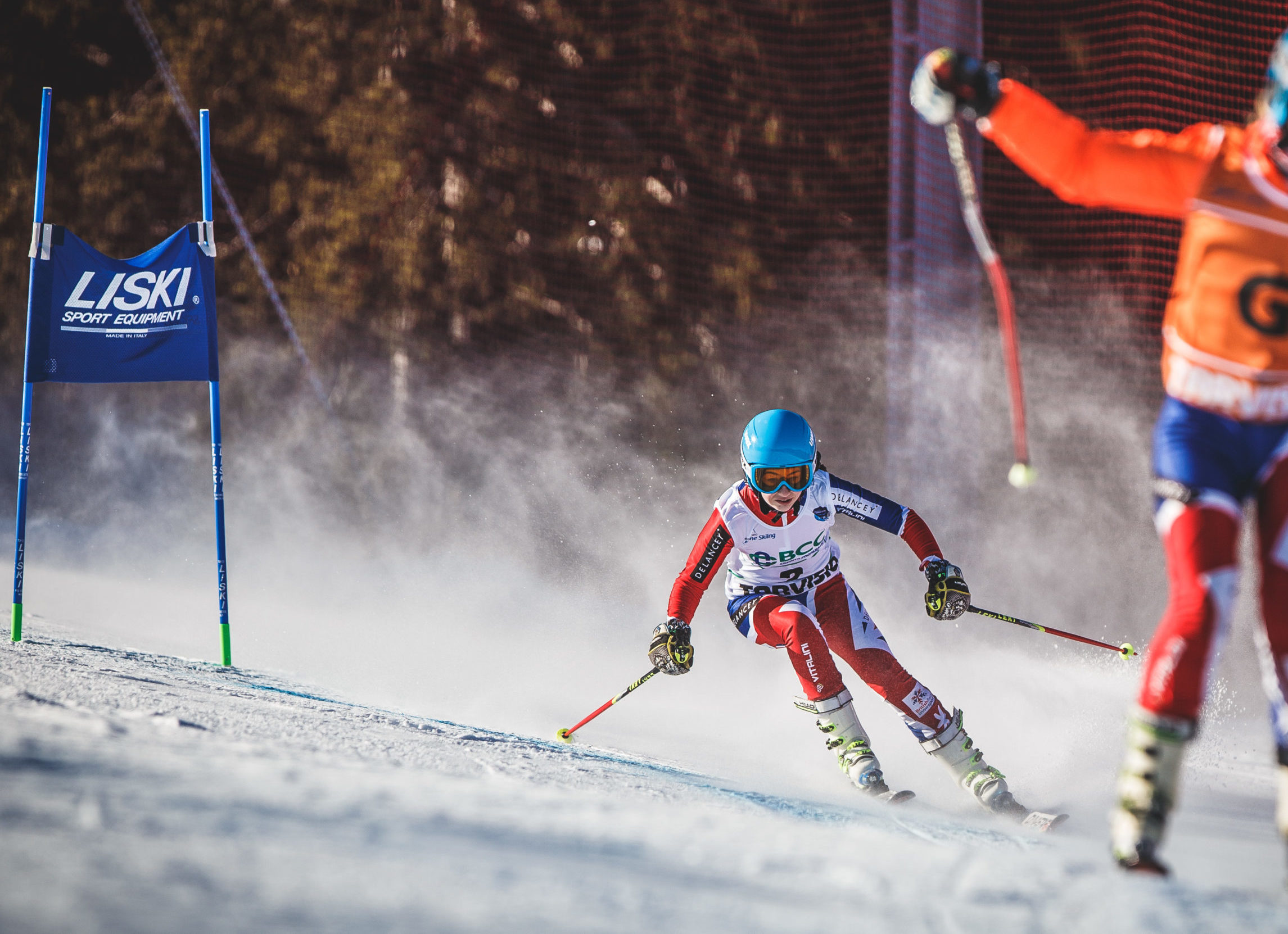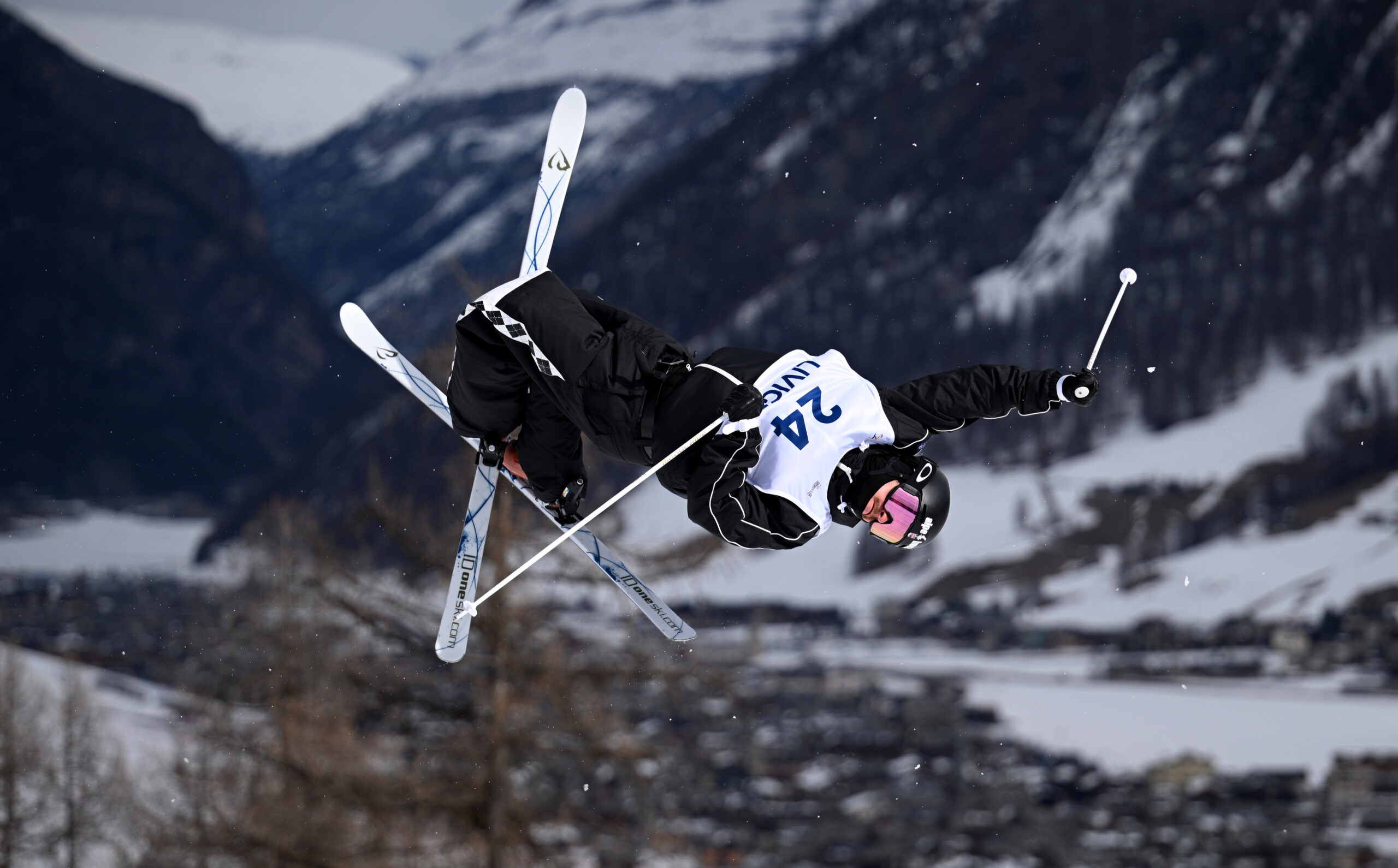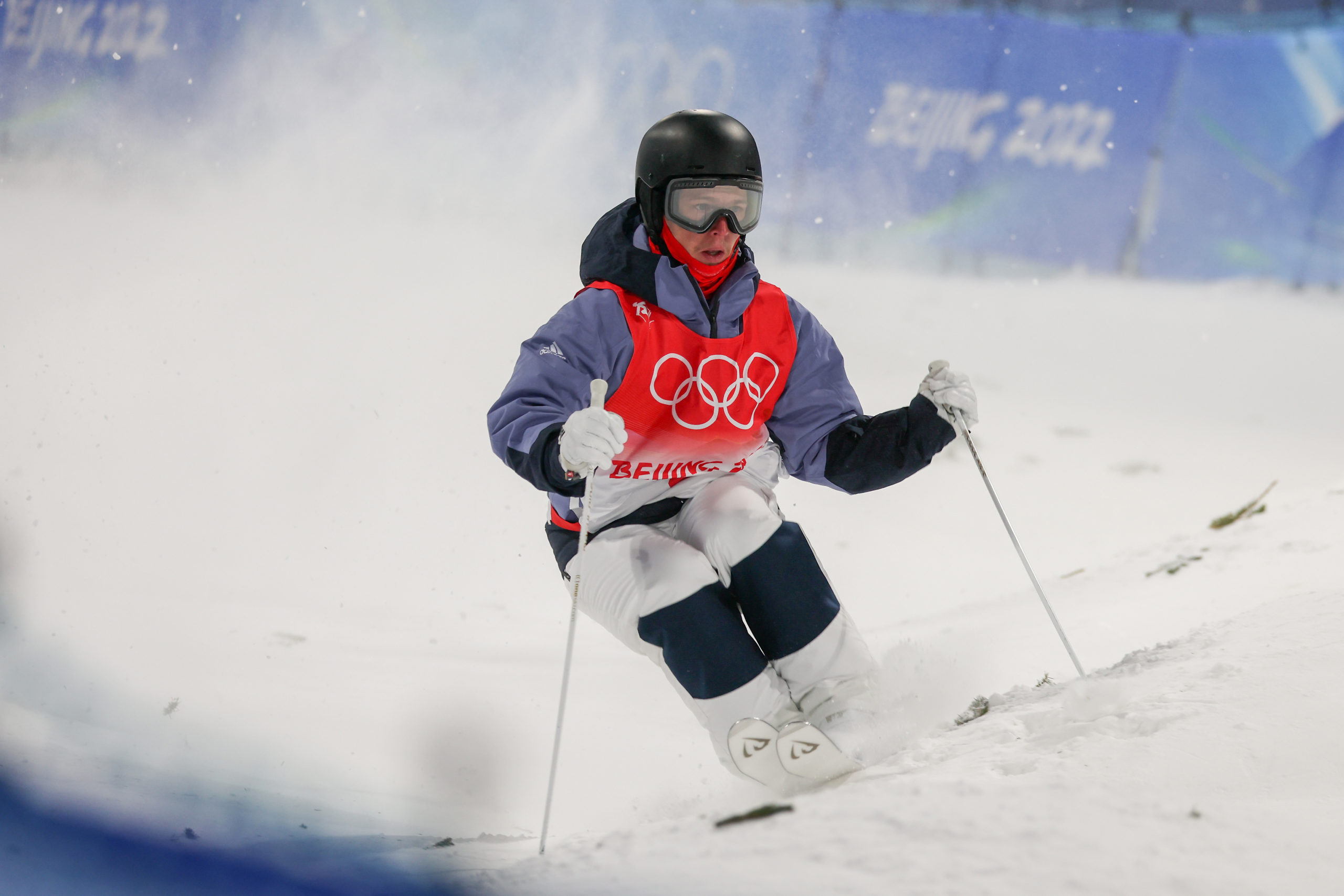
By Menna Fitzpatrick, Britain’s Most Decorated Winter Paralympian
I was born with congenital retinal folds, meaning that I have no vision in my left eye and very limited sight in my right eye, but my family went on ski holidays from when I was 5 years old, so I was lucky enough to learn from a young age. My dad was my guide and it was a great way to learn with him leading the way.
I fell in love with downhill skiing from a very young age. I love the feeling I get when I ski. It’s a mix of adrenaline, speed, the wind in my hair. It is pure enjoyment and I can’t explain the happiness that I feel. The relief of crossing the finish line at the end of the race never gets old, especially after going down the mountain at 100km/h.
It is difficult to explain how it feels to be a blind skier, but have you ever been skiing in low cloud with a blizzard swirling around you?
At best, finding your way is pretty difficult; at worst, it’s so disorientating that your senses play tricks on you – you can’t tell if you’re still moving and distant sounds can seem very close. And if you can imagine that, you have some idea of what it’s like to ski as a visually impaired (VI) skier.
Sound terrifying? It is.
My guide and I use a specific set of commands to communicate, and my guide is responsible for communicating the direction of travel, changes in terrain, light and snow conditions and the rhythm of the course. Plus, my guide has to set the correct pace to enable me to ski as fast as I can and give me instructions to speed up, slow down or keep at the same speed. It isn’t overstating things to say that the VI athlete’s life is in the hands of their guide.
Prior to a big event, I do have a routine that I like to do. I usually run through the course with my guide several times before our run then we warm up and during this time we tend to try and relax. I will admit that this is usually by singing Disney songs!! Then we refocus and start clicking into our skis and all my attention moves to the task at hand.
Sometimes I get asked what I would say to someone who wanted to get into my discipline. It is easy – do it, it is an absolutely amazing feeling of freedom and excitement at the same time. I would also say that there are a few important attributes to have as a skier. I have learnt a lot since I started competing from a young age, but resilience is the key physical attribute for me. Another attribute is the ability to be afraid and accept that and put it to one side and concentrate on the skiing. We go so fast down the mountain, so I have to be able to trust my guide. I think first learning how to ski with my dad as my guide has really helped me develop this trust from a much younger age. As I said before, ultimately, I am putting my life in my guides hands, so trust is so important.
So yes, it’s terrifying, and the stakes are high, but so are the potential rewards – like when we won gold at the 2018 Paralympics in PyeongChang. The exhilaration, the sheer thrill of travelling downhill at speed, the medals – are worth it. Well, I think so, anyway!
 Share
Share

